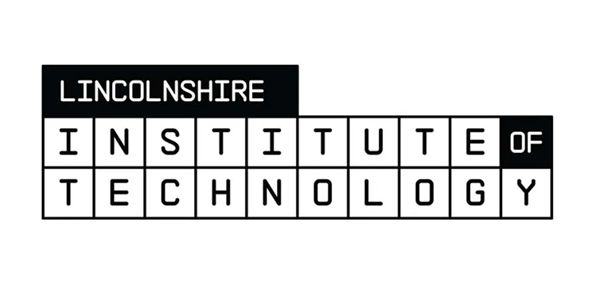What if my grades are not what I expected?
What if you do not receive any offers?
If you haven't received any university offers after getting your A-Level results, the first step is to know that this is not a dead end. It’s simply a moment to pause and plan a new, stronger path forward. Reflect on your application, it's is a constructive way to prepare for your next success.
Reflect
Sit down and gently consider some key questions about your original UCAS application. This isn't about blame; it's about understanding.
-
Were the course choices realistic? Consider if the entry requirements for your chosen universities were a close match for your predicted and final grades. Highly competitive courses often have very little flexibility.
-
Was relevant work experience needed? Some courses, like healthcare or veterinary science, require specific experience. A year out to gain this can make a huge difference when reapplying.
-
Could the personal statement be stronger? Did it clearly show your passion and suitability for the course? This is an area that can always be improved for a future application.
-
Is it still the right path? This is a valuable opportunity to ask if this is still the right course for you, or if an alternative like a different subject, a foundation year, or an apprenticeship might now be a better fit.
No University Place on Results Day? An Introduction to Clearing
With A-Level results now released, if you aren't holding any offers, your primary route to securing a university place for this September is through UCAS Clearing.
What is Clearing?
Clearing is the official UCAS system that matches students without a university place to universities that still have vacancies on their courses. It can feel fast-paced, but it is a fantastic and very common way for thousands of students to find the perfect course each year.
How Someone Can Support Them Through the Clearing Process
Be calm and organised. Here’s a practical checklist:
-
Prepare: Before making any calls, you should have all your key information ready:
-
Your UCAS ID and Clearing number (this will be in your UCAS Hub).
-
Your A-Level and GCSE results.
-
A copy of your personal statement.
-
-
Research Courses Together: Use the official UCAS search tool to look for available courses. Create a shortlist of universities and courses you are genuinely interested in.
-
Be Encouraged To Make The Calls: Admissions tutors will need to speak directly to you. The best way to prepare is by doing a quick practice runs with whoever is supporting you, so you feel confident explaining your situation and asking questions.
-
They Can Be a Sounding Board: Universities may make a verbal offer over the phone and give you a short time to consider it. Your supporting adult can there to help them talk through the pros and cons so you can make a decision that feels right for you.
Are you eligible for UCAS Extra?
If you are eligible for Extra, it will show up when you log into UCAS Track. Extra is designed for students who have been turned down by all of their choices or have turned down their offers. Universities and Colleges let UCAS know where they have spare places and you can search for these using the filters on the UCAS course search. Whilst this search does show you which courses have places available in Extra, it doesn’t let you know HOW many places are still available on each course.
You can also sign up for UCAS Media mailings if you'd like to get emails from universities and colleges with details of their vacancies
Extra gives you the chance to reconsider your university and college application, perhaps looking at courses not requiring such high grades or even different subjects if you have changed your mind. You need to contact the university or college to see whether they are prepared to consider you and it may be that they will request further information or you can offer to send them a new personal statement, especially if you have decided to change subjects.
It is unlikely that the really competitive courses will have places available in Extra. It is only possible for you to apply for one new course at any time through Extra so this does mean that you will not be able to have an insurance place. For details on Extra use the UCAS website and read their FAQs.
Whatever situation you find yourself in – whether you have been rejected by your 5 choices or completely changed your mind, don’t panic and just opt for any offer
Remember, the choice in Extra needs to be researched so take a look at which course to do to make sure that it is a good choice for you. If you do not receive an offer through Extra or decide that you don’t like what was offered, you are still eligible for Clearing.
Have you only applied to one course?
If you only applied for one course, it is possible for you to add another choice as long as you do this before the end of June. There is an additional charge to UCAS for this.
Are you eligible for Clearing?
You are eligible for Clearing if you do not hold any offers.
For The Parents:
Making a Smart Choice in Clearing: A Parent's Checklist
Once your child starts getting verbal offers through Clearing, the pressure can mount. The process moves quickly, but it’s vital they don't rush into a decision. Your support can help them pause, think clearly, and make a choice that is genuinely right for them.
The Golden Rule: Don't Panic-Accept the First Offer
Remind your child that they are in control. It is far better to take a breath and make a considered decision than to accept a place at a university or on a course that isn't a good fit. It can be flattering to be wanted, but the whole package needs to be right for them.
Your Research Checklist: What to Do Before They Accept
Use this checklist to work through the details with your child for any course they are seriously considering:
-
Visit if Possible Many universities have staff on campus during the Clearing period. If you live close enough, a quick visit can provide a much better feel for the place than a website or video tour ever could. Help your child find out if open days or campus tours are available.
-
Investigate the Course Details Go beyond the course title. Help them look at the specific modules, the ratio of coursework to exams, and any opportunities for work placements or study abroad years. The Find and Compare tool on the UCAS website is excellent for this.
-
Look at the Bigger Picture (Accommodation & Student Life) A degree is about more than just the course. Prompt them to check what's still available for university accommodation, and to look into the clubs and societies that match their interests. A positive student experience is vital.
-
Consider Any Alternative Offers Sometimes a university can't offer a place on their first-choice course but may offer a place on a similar subject or a joint honours degree. Help your child to properly consider if this alternative is a good match for their long-term goals.
-
Encourage Them to Talk to School Staff Their teachers and school careers adviser know them well and can offer invaluable, impartial advice on their options. A quick phone call can provide much-needed perspective.
-
Ask the Final Question: Is This Better Than a Gap Year? Ultimately, the choice is theirs. The final conversation should be an honest one: is this new offer the right course at the right university for them, or would they be better off taking a year out to gain experience and reapply with a stronger application next year? A well-planned gap year is a fantastic and valid option.
Explaining the UCAS Direct Contact Service: A Guide
If you are in Clearing today, you may hear about the UCAS 'Direct Contact Service'. This is an optional service you may have signed up for before results day. Here’s a quick guide to what it is and what to expect.
What is the Direct Contact Service?
It is a system that allows universities with course vacancies to see the details of students in Clearing and contact you directly with an offer. The aim is to help students find a suitable place more quickly.
What happens if you get a call or email?
A university may phone or email you to offer you a place on what you consider to be a relevant course. This is a direct, verbal offer, but it is not an obligation.
Do you have to accept an offer made this way?
No. This is the most important thing to remember. All the standard advice about carefully researching Clearing choices still applies. Be encourages to:
-
Thank the university for their offer.
-
Take down all the details of the course.
-
Politely ask for some time to consider it.
You should treat this offer as a great starting point, but still take the time to research the course and the university before making a final decision.
What to Do If Your Grades Are Better Than Expected
Important Note: The old UCAS 'Adjustment' service for students who exceed their offer no longer exists.
If you have done better than expected, you may be able to find a place at a university with higher entry requirements. The current process is to release yourself into Clearing using the 'decline my place' option in their UCAS Hub.
This is a significant and irreversible decision.
Have an adult help you think through the options calmly and strategically.
-
Be encouraged to research: You should phone admissions teams at other universities to see what's possible before taking any action.
-
Discuss the risk: Ensure you understand that declining their confirmed place is permanent.
-
Advise them to seek expert help: The most important step is for you to speak with a careers adviser at your school or college before making a final choice.












